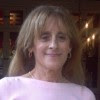“I claim sanctuary!”
In medieval England, there was no more powerful a cry.
The social station of the person was of no consequence; what mattered was that
they were fleeing a pursuer and had arrived at the door of a church. Lift the
wooden knocker on the door, utter the three words, and you would be granted
asylum within its walls for 40 days.
Sanctuary
derives from the Latin sanctus, meaning sacred. It is the same word that
gives us sacrosanct. We don’t use these solemn terms much anymore and
yet, who doesn’t want a place that we know will shelter us?
Refuge and ritual
Although there is no wooden knocker on the door of
Books & Books, for 40 years now this Miami bookstore has been a sanctuary
for readers lucky enough to live in, or visit, South Florida. Most of us are
not likely to be fleeing pursuers (although this is Miami…). We are
seeking refuge of another sort: a refresher for our minds, a respite for our souls.
We come, ostensibly, for the books and for the ritual
that entails. Browsing shelves, lingering at tables, turning pages, treading on
wooden floors whose reassuring creak signals a certain permanence. But we also
come for the community.
Invariably there is someone to talk to, even if we’ve
just met. The café and courtyard practically assure this, as they serve up
fellowship as deftly as delicious fare. The cohort of hyper-readers—the staff—is
equally adept at practicing the ancient rite of independent bookstores, guiding
you from one room to the next, each its own literary ecosystem, to the books
that seem to have been waiting for you.
Mecca and safe space
And always (even though he might be at another Books
& Books location) there is Mitchell. Founder, owner, visionary—Mitchell
Kaplan has always understood that despite what early skeptics said, South
Florida was a mecca for readers. Or maybe he simply knew how to make it that
mecca, cofounding the Miami Book Fair at almost the same time he opened Books
& Books.
When the stores had to close temporarily during the
pandemic, it meant they could no longer set out their rows of wooden chairs for
their continual author events. But the staff quickly pivoted, bringing us
authors remotely, night after night, as we sat in our own chairs. During those grim
and fearful days, the virtual Books & Books became our safe space, allowing
us, for a short sweet time, to escape
the incessant worry.
We are accustomed these days to having bird
sanctuaries and wildlife sanctuaries, so why not a reader’s refuge? We may not
be extinct or even endangered but we are…grateful. Books & Books is where the
exploration of ideas, so sacrosanct in a democracy, finds space to be free. You
don’t need to knock on the door. Just come in, and you will find sanctuary.
May those wooden floors forever creak.


